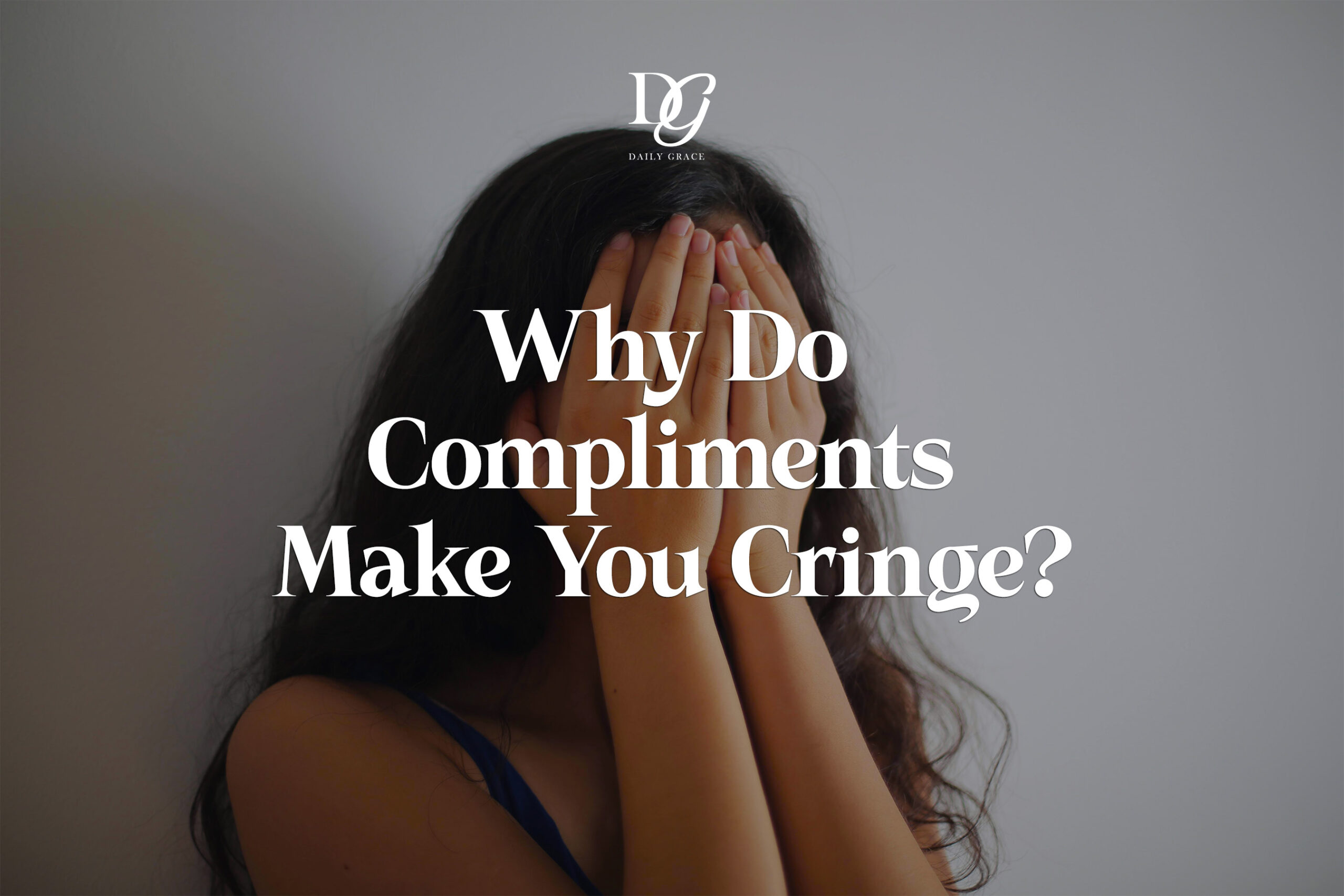Inspiring Change Every Day with Grace
Why Do Compliments Make You Cringe?

Have you noticed, either with you or someone else, that when you receive a compliment, you often don’t know what to do with it?
Someone says, “You look beautiful today,” or “You’re smart,” and instead of smiling or simply saying thank you, you start shrinking. You deflect. You make a joke. You change the subject. Sometimes you even feel a bit exposed, as if someone just saw something you were trying to hide.
For some, compliments don’t feel like kindness; they feel like pressure, or worse, lies wrapped in politeness. But what if these awkward moments are not just personality quirks? What if they’re whispers of hidden insecurities?
One of the most subtle insecurities is discomfort with being praised. It’s not that the compliment is wrong; it’s that deep inside, we don’t believe it. And when someone points out what’s good, it clashes with the inner script we’ve rehearsed for years; I’m not enough, I’m not special, I’m not worthy.
That inner critic is so familiar that any voice of affirmation feels suspicious, even threatening.
Instead of celebrating our strengths, we brace for disappointment or judgment. The good news is, these discomforts often has a root, which traces back to past experiences, childhood environments where praise was rare or conditional, relationships where love was earned instead of given, moments where being seen was followed by being criticised.
Over time, we develop a habit of emotional self-protection. We stay low so we don’t get knocked down. We dismiss praise so we’re not disappointed. But in doing so, we rob ourselves of the joy of being appreciated, and we make it hard for others to love us fully.
Think about the last time someone complimented you. Did you receive it with warmth, or did you flinch a little on the inside? Did it feel like a gift or a test?
Emotional growth starts in moments like this, small interactions that reveal big truths. Thus, becoming aware of our discomfort is the first step. The second is learning how to receive. It’s not arrogant to say thank you. It’s not pride to acknowledge your light. It’s emotional maturity.
In relationships, whether at work, in friendships, or romance, being able to receive and give compliments builds intimacy. It allows people to see you and feel seen by you. But if one side keeps dodging affirmation, the other may stop giving it altogether.
That’s how distance forms. That’s how silent gaps grow between people who once tried to connect. The inability to accept good things doesn’t just hurt you, it hurts the bond too.
Healing begins with replacing the old script. Instead of thinking, “They don’t mean it,” try “Maybe they see something I haven’t acknowledged yet.” Try writing down compliments you’ve received and reflecting on them.
Sit with the discomfort instead of running from it. Ask yourself why it feels so undeserved. And if it’s because you’ve tied your worth to performance, perfection, or past wounds, begin to rewrite that story. You don’t have to be flawless to be affirmed. You don’t have to earn love to receive it.
So when next someone sees you and says, “You’re amazing,” don’t panic. Don’t run. Receive. Let it sink in, even if just for a second. It may feel foreign, but with time, it’ll feel like home. And when it does, that inner critic will grow quieter, making room for a kinder, truer voice: your voice
No Copyright infringement intended.
Have you ever felt like you couldn’t be yourself in a group or with certain people? What triggered that feeling, and how did you deal with it?
Use the this link to share your story and experience anonymously https://gdpd.xyz/dailygrace
PS: Kindly Follow our WhatsApp Channel at https://whatsapp.com/channel/0029VawUlQGBPzjQXzs6fX2Q for more engaging content.

